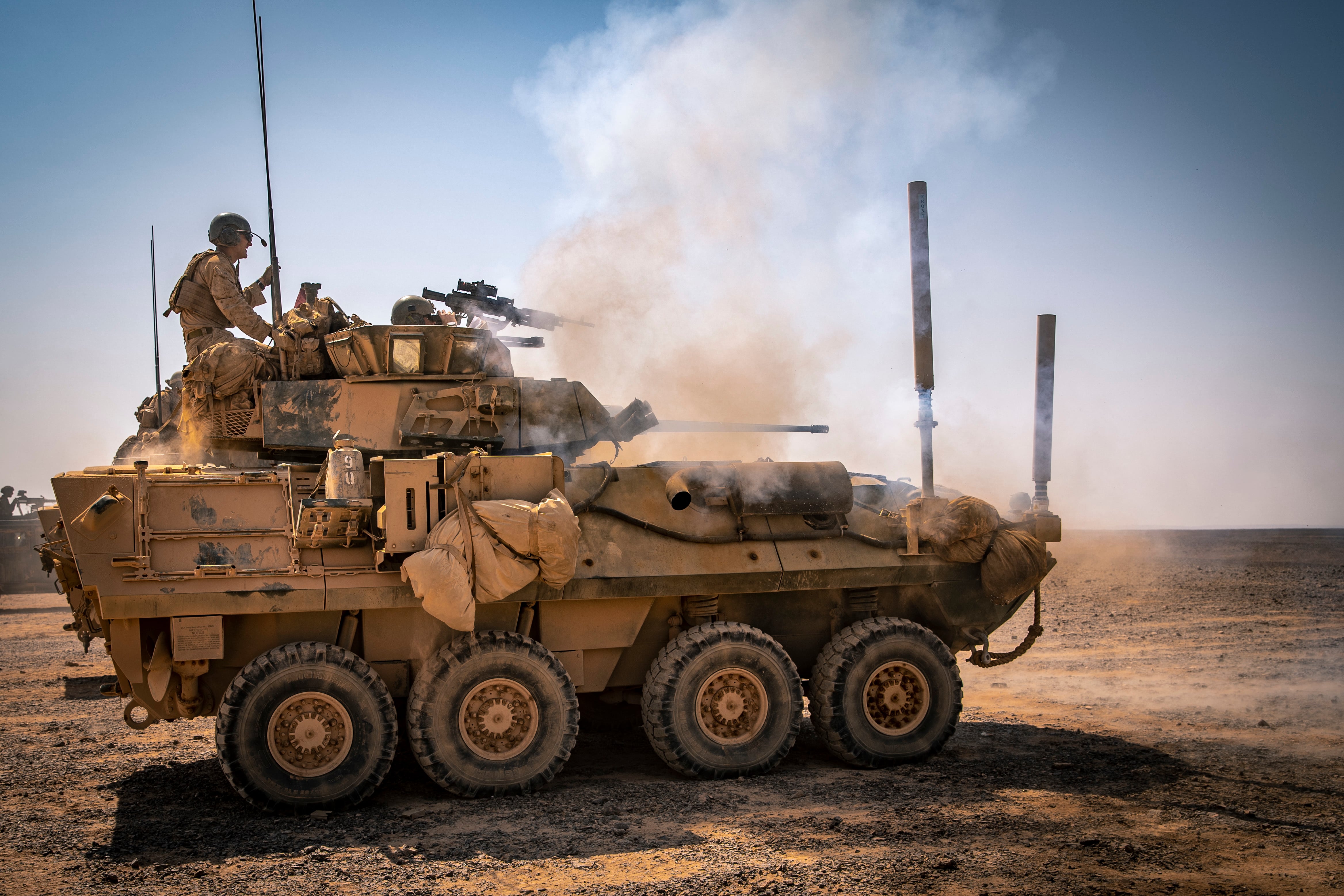The Marine Corps has shut down its active duty law enforcement battalions as it continues to transform from a force focused on the Middle East to one prepared to play a role in a future war against a near-peer adversary.
On Oct. 1, the 3rd Law Enforcement Battalion, stationed out of Okinawa, Japan, was deactivated as part of the Marine Corps’ Force Design 2030 plan.
“It’s been my honor to serve as a Marine Corps officer … but it was a dream to come back and command this great unit,” Lt. Col. Bryce Carter, the battalion’s last commanding officer, said during the deactivation ceremony. “To be in a forward-deployed law-enforcement battalion is a special treat. We were the maneuver element for III MEF. When they needed a conventional force to do real-world operations, we were the first ones they called every time.”
RELATED

The battalion was the final of the three law enforcement battalions to deactivate as part of Force Design 2030, with the 2nd Law Enforcement Battalion shutting down shop on Dec. 17, 2020, and 1st Law Enforcement Battalion closing down on Oct. 1, 2020.
“This capacity is excess to our current needs, which can be met by the remaining force with some adjustments in current operational practice,” a summary of the Corps’ planned Force Design 2030 moves said of the law enforcement battalions.
Once again deactivated
Deactivation as the Corps moves on from a war is a long tradition for Marine law enforcement battalions.
The Corps’ first law enforcement battalions were activated during World War II, where they were put to work processing prisoners of war in the Pacific along with any civilians prisoners.
After the war ended, so did the law enforcement battalions.
They were brought back during the Vietnam War, where they operated brigs, “conducted drug interdiction operations, and engaged in combat with the enemy,” a history on the 3rd Law Enforcement Battalion page said.
When the war ended, the battalions were once again deactivated.
After Sept. 11, 2001, the Corps reactivated the 2nd Marine Law Enforcement Battalion, sending them on deploying to Iraq and Afghanistan until 2006 when the unit was shut down.
In 2012 the Corps one again rediscovered its need for the law enforcement battalions, reactivating all three battalions to conduct law enforcement missions in Iraq, Afghanistan and on Marine Expeditionary Units.
“Take a look at our lineage, and just know that we’ll be ready when the time comes,” Lt. Col. Thomas Turner, the commanding officer of 2nd Law Enforcement Battalion said in October 2020 when that battalion was preparing to deactivate.
“We are not a legacy battalion, but a battalion with a great legacy,” he said. “For one final time, Guardian Six out.”
Though the battalions are going away, the Corps does plan to keep some law enforcement Marines.
The Marine Corps currently has 265 commissioned officers in the 5803 military police officer career field, Yvonne Carlock, a spokeswoman for Marine Corps Manpower and Reserve Affairs, told Marine Corps Times.
The Corps’ authorized end strength for the job is just 147 military police officers, Carlock said.
“As the Marine Corps is only partially divesting the Military Police (MP) MOS, it is utilizing similar force shaping tools to reach the authorized end strength in support of Force Design,” Carlock said.
The Marine Corps has offered some eligible officers in the career field an early retirement to help get to the authorized end strength, according to an administrative message.
To be eligible, Marines in with the 5803 military occupational specialty, or MOS, must have between 15 years and 20 years of service and be between the rank of captain and lieutenant colonel, according to the MARADMIN.
Those Marines who do not qualify for early retirement or wish to stay in the Marine Corps are also eligible for lateral move into the 0102 manpower officer, 0202 intelligence officer, 0402 logistics officer, 0602 communications officer, 1702 cyberspace warfare officer and 3002 ground supply officer fields, according to another administrative message published in October.
Editor’s note: This headline has been updated to say “active duty” Marine law enforcement battalions.





